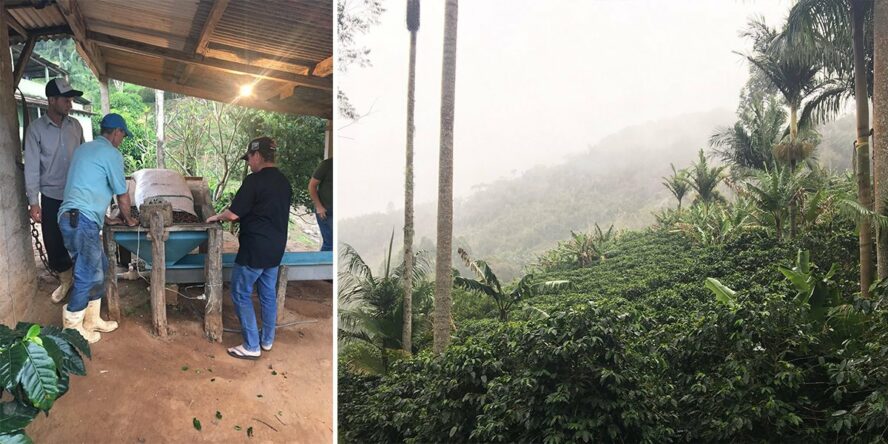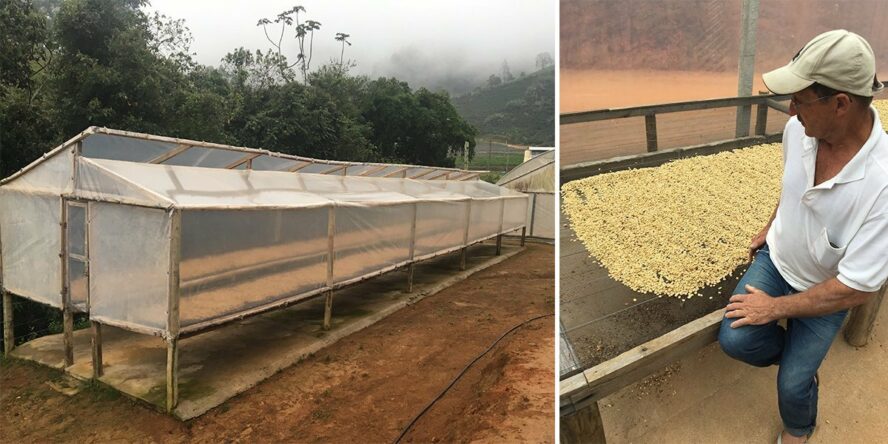The Espírito Santo region in Brazil is another clear exception that completely breaks with the belief that Brazil only produces boring coffees with labels like 'nutty' or 'chocolate'. To prove this, we didn't hesitate to continue our journey through this great country to discover this region. We traveled from São Paulo to Victoria, where we had an appointment with Rafael, the manager of a small, young company focused on supporting producers in Espírito Santo. This area is probably one of the forgotten regions of the country due to the mistaken belief that absolutely nothing happens or is produced here. We find this disdain very curious, since for us it has been one of the most unusual and exciting regions we have visited in recent years.

Traditionally, coffee in Brazil is processed using the dry or natural method in low-altitude regions, as the main production takes place in the highlands. Personally, we had never stopped believing in the existence of the "white elephant," although we had never imagined we could find coffees with characteristic Horn of Africa profiles in Brazil: complex and with prominent acidity where the tropical fruits are extravagant and delicious. Of course, we also never imagined that this coffee would be produced below 1,000 meters above sea level, and we didn't trust that the Catuaí variety would be the one to occupy this privileged place.
That's when all our stereotypes and rules went out the window. We could simply sit back and contemplate that wonderful landscape surrounded by mountains, as if it were Colombia. The proximity to the Atlantic Ocean creates a very distinctive climate, resulting in a drastic temperature difference between day and night. Furthermore, most producers are small and medium-sized, as is the case in Central America or Colombia, with a respect for forest preservation that is uncommon in this country, where the Amazon basin and other areas are highly threatened by intensive and aggressive cultivation.

That said, let's focus on the coffee and the profiles we found where the tropical fruit notes speak for themselves. Very clean and complex, these lots are marked by their semi-washed or, we could say, almost washed process, something exceptional in Brazil. During our visit, we were captivated by Joselino, who represents a lineage of producers whose imagination, dedication, and respect for nature left us speechless. Joselino has more than one hectare of coffee and more than five hectares in the forest. He comments that the forest protects his coffee plantation because pests flock to other tree species before they do to the coffee trees. His dry and wet mill was built by himself and his son with the same precision as an engineer, and they also apply their own inventions to every process. In our opinion, there is nothing more closely linked to the "Right Side"—the right side of the brain—than this attitude of bringing creativity to bear when resources are lacking.
This selection of Espiritu Santo coffees has been produced and roasted to erase the stereotype surrounding Brazilian coffee. We love working with these exceptions, which for us are miracles to be appreciated and, above all, enjoyed.
